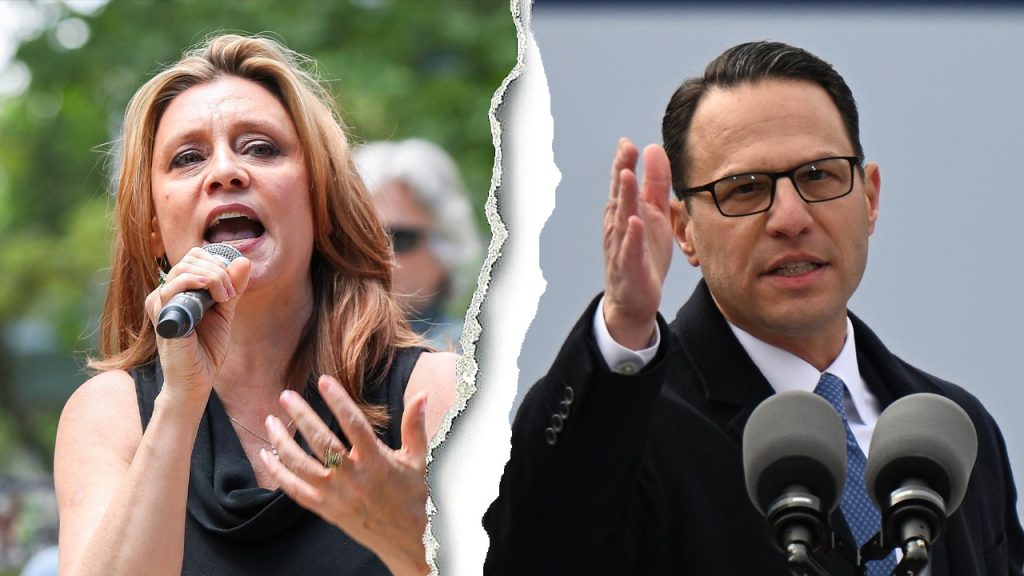Erin McClelland, a Democrat running for treasurer in Pennsylvania, publicly endorsed North Carolina Governor Roy Cooper for the Democratic nomination for vice president over her own governor, Josh Shapiro. In her social media posts, she criticized Shapiro for mishandling a sexual harassment scandal involving a former top aide. Despite backlash from some Democratic party officials, McClelland stood by her comments and highlighted the importance of having a vice president who is respectful of women in leadership positions and can appeal to rural voters. Shapiro, who is viewed as a rising star in the Democratic Party, has faced criticism from both Democrats and Republicans for his handling of the scandal and his stance on school choice.
The sexual harassment scandal in Shapiro’s office involved a former top aide, Mike Vereb, who was accused of harassment by a female subordinate. The governor’s office reached a settlement with the accuser, but Vereb remained in his position for months after the complaint was filed. Pennsylvania lawmakers and Republicans criticized Shapiro for his handling of the scandal, leading to renewed scrutiny after McClelland’s comments. Despite the controversy, Shapiro maintains a strong favorability rating in battleground Pennsylvania, where 19 Electoral College votes are at stake in November.
McClelland’s remarks about Shapiro and her endorsement of Roy Cooper as a vice presidential nominee elicited mixed reactions within the Democratic Party. Pennsylvania Democratic Party Chairman, Sharif Street, expressed offense at McClelland’s comments but emphasized that the party would support Vice President Kamala Harris’s choice for a running mate. McClelland remained unapologetic for her criticisms of Shapiro, citing the importance of having a vice president who respects women in leadership roles and can connect with rural voters. She also praised Cooper for his support of public education, an issue important to her.
Despite McClelland’s support for Cooper, she clarified that she would support the Democratic ticket, regardless of the vice presidential nominee. Cooper, in her view, exemplifies qualities she values in a running mate, such as being comfortable in his own skin and not having strong ambitions for the presidency. The New York Post highlighted Shapiro’s mixed reputation, facing criticism from both the left and the right for his positions on issues like school choice. McClelland’s endorsement of Cooper and criticism of Shapiro underscore the complexities of intraparty dynamics and personal preferences in the realm of politics.
The controversy surrounding McClelland’s comments and her preference for a vice presidential nominee other than Shapiro has brought attention to the internal dynamics of the Democratic Party in Pennsylvania. While some party officials have expressed disapproval of McClelland’s criticisms, others have emphasized the importance of unity and support for Vice President Harris’s choice for a running mate. The fallout from McClelland’s remarks sheds light on the complexities of navigating political allegiances and personal beliefs within a party framework, especially in the lead-up to a crucial election where Pennsylvania’s Electoral College votes are at stake.


